NIKE Colin Kaepernick Ad Focusing on Standing Up for What You Believe Draws Both Praise and Criticism – PART TWO : A Well Thought Out Scream by James Riordan
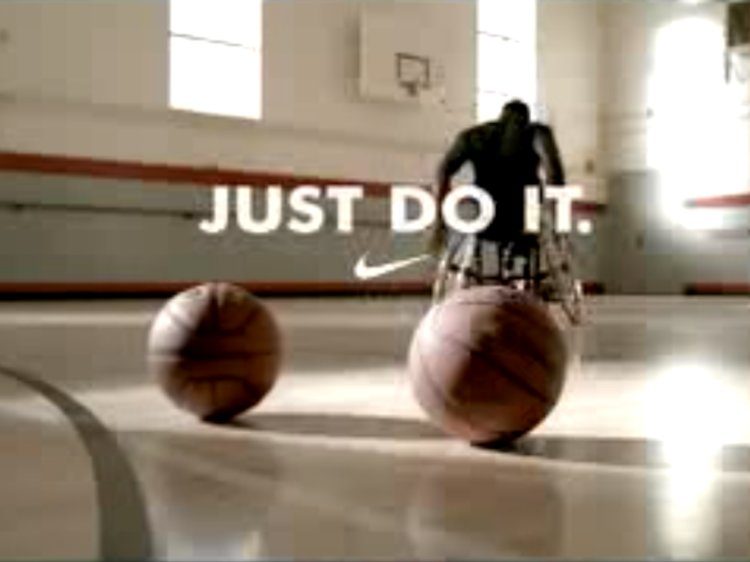
It appears Nike is doing just fine in the wake of one of the most predictably divisive marketing campaigns in recent memory.
Ten days after Nike announced that Colin Kaepernick would be the face of its “Just Do It” 30th anniversary ad campaign, the sports apparel behemoth’s stock price closed at an all-time high on Thursday September 6th at $83.47, according to a report from Bloomberg.
Nike had previously faced a noticeable dip in its stock price in the immediate aftermath of its Kaepernick announcement, dropping nearly 3 percent in the next day of trading at the New York Stock Exchange. That fall has since been made up and more, with the current price slightly besting the company’s previous high of $83.00 from Wednesday and an earlier peak of $82.95 on Aug. 21, 2018.
Nike likely knew what it was getting into with its decision to feature what is probably the most politically divisive athlete in the world today as one of the faces of the company, and the result hasn’t disappointed.
Boycotts were planned, people burned their Nike gear even though Nike already had their money and one mayor of a Louisiana town even tried to ban the gear from being sold at public facilties before pulling back.
And of course, President Donald Trump had plenty to say about a topic he has been obsessed with, tweeting that Nike was getting “absolutely killed with anger and boycotts” and asking what the company was thinking with their divisive decision.
Well, the answer seems to be that Nike was thinking the spike in sales and brand awareness would be worth the backlash, and so far it seems they are being proven right.
LeBron James, who signed a lifetime contract with Nike a few years ago, happily greeted the news.
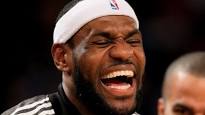 “Well I mean I guess WE’RE on [fire],” gushed James, adding the hashtag ”#JokesOnYou.” James, who has signed a lifelong contract with Nike, also appears in the ad campaign.
“Well I mean I guess WE’RE on [fire],” gushed James, adding the hashtag ”#JokesOnYou.” James, who has signed a lifelong contract with Nike, also appears in the ad campaign.
The campaign in question made its first video appearance when Kaepernick tweeted out a two-minute video featuring himself narrating stories of athletes who have beaten the odds, ending with the words “It’s only crazy until you do it,” then changing to “Just do it.”
Nike likely knew what it was getting into with its decision to feature what is probably the most politically divisive athlete in the world today as one of the faces of the company, and the result hasn’t disappointed.
Boycotts were planned, people burned their Nike gear even though Nike already had their money and one mayor of a Louisiana town even tried to ban the gear from being sold at public facilties before pulling back.
And of course, President Donald Trump had plenty to say about a topic he has been obsessed with, tweeting that Nike was getting “absolutely killed with anger and boycotts” and asking what the company was thinking with their divisive decision.
Well, the answer seems to be that Nike was thinking the spike in sales and brand awareness would be worth the backlash, and so far it seems they are being proven right.
Public opinion of Nike heavily changed after the ad campaign according to one poll of Americans. While there was a noticeable increase in people viewing the company negatively, the CEO of the polling firm concluded that the move “seems to have worked,” thanks to an increase in appeal to young males that are more likely to buy Nike apparel.
Nike sales up 20 percent compared to last year
Per Bloomberg, Nike sales measured by Edison have revealed some very strong tracking numbers: Edison scanned receipts from more than 200 online retailers (including Nike.com) and found that that Tuesday after Labor Day, for example, the first full day after Kaepernick’s ad went viral, Nike purchases were 22 percent higher than the same day in 2017. On Wednesday they were 42 percent higher, and Thursday they were 23 percent higher. They remained above 2017 levels through the end of the week.
Of course, as Bloomberg notes, it will likely take much longer than 10 days to full assess the impact of Nike’s decision to feature Kaepernick. It’s also probable that Nike’s recent stock price fluctuations are not 100 percent attributable to a single ad campaign. Even if its increase in sales isn’t sustainable, Nike likely isn’t regretting its decision so far.
Clothing and shoe makers have always had a back-and-forth relationship with minority communities. Business boomed as black athletes became spokesmen and spokeswomen, but questions arose over how much the companies invested financially in black communities, compared with how much they made by exploiting African-American trends.
The relationship began in the 1980s, when Nike, Adidas, Reebok and Converse became staples of black fashion, and African-American youth sought to emulate the stars of the day, like Jordan, Run-DMC and other figures associated with the burgeoning hip-hop culture. Footwear came to symbolize status and street style. Sneakerheads lined up outside stores to get the newest shoes.
Companies “have made millions off of following trends from the black community, and so they have to be cognizant of the feelings of that community,” said Antonio S. Williams, who teaches sports marketing at Indiana University. “It only takes one or two incidents for shoes to be pushed aside and declared uncool and left behind, so they are very aware of the cultural exchanges and trends going on in their base communities.”
New Balance tried to steer clear of politics in 2016 after coming out in support of Trump’s desire to remove the United States from the Trans-Pacific Partnership. A company official said “things are going to move in the right direction” under a Trump presidency. Protesters took that as support for Trump and began burning New Balance shoes and posting videos. At least one white supremacist declared that New Balances were the shoes of “The Trump Revolution.” New Balance quickly released a statement saying the official’s remark was taken out of context. The company insisted that it “does not tolerate bigotry or hate in any form” and “believes in humanity, integrity, community and mutual respect for people around the world.”
Unlike New Balance, Nike doesn’t seem to be backing down. Its two-minute commercial, highlighting Kaepernick, James, Serena Williams and others, aired Thursday during halftime of the NFL’s season opener. Nike has likely figured out that its core consumers — the people who regularly buy its sneakers and clothes — are probably the millennials and minority youth who already support Kaepernick or at least don’t mind the stance he is taking, Antonio Williams said.
“Nike wants to be on the right side of history and the right side of its core consumers,” he said.
The NFL released a statement on Tuesday September 4th backing players who have protested to raise awareness about social issues. The statement referenced Colin Kaepernick, saying the issues he has raised “deserve our attention and action.” The statement comes after Nike made Kaepernick the face of its “Just Do It” ad campaign.
“The National Football League believes in dialogue, understanding and unity,” the statement also read. “We embrace the role and responsibility of everyone involved with this game to promote meaningful, positive change in our communities.” The statement also highlighted some of the charitable work NFL players have done to support different causes.
Kaepernick has remained unsigned since the end of the 2016 season when he first began kneeling during the national anthem to protest social injustice and police brutality. Last October, he filed a collusion grievance against the NFL, which is ongoing.
The statement is one of the NFL’s most supportive of protesting players since Kaepernick began his protest. The players and owners have met many times over the issue of player protests, with owners agreeing to highlight the work done by players in communities and agreeing to donate to charities of players’ choices.
In July, the l eague suspended a new rule owners had passed in the spring that said players on the field must stand for the national anthem. If players did not want to stand, they could remain in the locker room.
Following outrage over the rule and possible punishments, the league and players union agreed to suspend the rule and come up with a different policy. While both sides have said they continue to work on it, a new rule isn’t expected by the start of the season.
Nike has a long history of using its ads to make a social statement. The “Just Do It” campaign, created by the Wieden+Kennedy agency, launched in 1988. The first commercial in the campaign featured 80-year-old Bay Area icon Walter Stack, who ran approximately 62,000 miles in his lifetime.
A year later, the company advocated for people with disabilities in a spot starring Paralympian Craig Blanchette.
In 1993, an ad starring Charles Barkley sparked a conversation about whether celebrities and professional athletes should be held to higher standards. “I’m not paid to be a role model. I’m paid to wreak havoc on the basketball court,” Barkley says in the ad.
Nike made a statement when a 1995 “Just Do It” ad featured openly gay, HIV-positive runner Ric Munoz. AIDS activists applauded Nike for the campaign.
In 1995, Nike tackled gender issues with its “If You Let Me Play” ad, which addressed the benefits of organized sports for girls. The ad featured young girls quoting statistics about the benefits of how sports can improve their lives.
In 2007, Nike featured Matt Scott of the National Wheelchair Basketball Association in a “Just Do It” ad.
Nike touched on gender issues again in 2012 with its “Voices” ad, which celebrated the 40th anniversary of Title IX.
Nike’s 2017 “Equality” campaign featured black athletes like LeBron James, Serena Williams, Gabby Douglas, and Kevin Durant, along with actor Michael B. Jordan talking of the parallels between equality in sports and equality in the broader world.
Nike also released the “What Will They Say About You?” ad in 2017, which featured five Middle Eastern women pushing social norms to succeed in sports like boxing and skateboarding.
Earlier this year, Nike celebrated 30 years of the “Just Do It” tagline with an ad campaign following Serena Williams’ path to the US Open.
As Colin Kaepernick watched from the apparel giant’s headquarters in Oregon, Nike 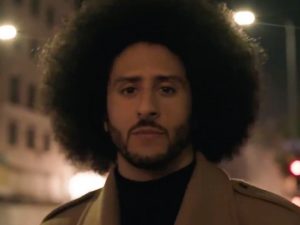 aired its highly anticipated ad featuring the quarterback known for his social protests during the NFL season opener Thursday night.
aired its highly anticipated ad featuring the quarterback known for his social protests during the NFL season opener Thursday night.
The spot highlighting the former 49ers quarterback locked in a grievance with the league aired during the first ad break in the third quarter of the Eagles-Falcons game, which started with no overt demonstrations by players during the national anthem.
A person familiar with the situation told The Associated Press that Kaepernick was watching the ad’s first television airing on NBC at an event held at Nike’s world headquarters in Beaverton, Oregon. The person spoke on condition of anonymity because details of the visit were not announced publicly.
Still, some attendees posted accounts of the visit on social media, including video of Kaepernick speaking to a crowd Thursday several hours before the ad aired.
“You have to think beyond what you see around you,” said Kaepernick, who hasn’t spoken to the media publicly since opting out of his contract with San Francisco and becoming a free agent in 2017.
“You have to see the future that you believe in and that you want not just for yourself but all the people you see globally,” he said.
Kaepernick’s deal with Nike for the 30th anniversary of the “Just Do It” campaignwas the most polarizing issue in sports this week, prompting heated debate on several topics including athletes protesting social injustice and Nike wading into political waters. Some fans responded to Kaepernick’s sponsorship deal by cutting or burning gear with Nike’s signature swoosh logo. Others argued the backlash and calls for a Nike boycott showed how debate has morphed beyond how to react to athletes trying to highlight issues like racial inequality and police shootings of unarmed minorities.
Eagles safety Malcolm Jenkins and defensive end Michael Bennett were on the sideline and neither really demonstrated during the song. Jenkins and Bennett regularly have either knelt or stayed off the field during the anthem to protest social injustice and racial inequality. They have been among the most vocal protesters since Kaepernick began similar demonstrations in 2016. Jenkins stood with teammates while Bennett wandered behind them near the Eagles bench and adjusted his equipment.
Jenkins said he thinks players should shift the focus of the debate away from the anthem itself and back to the issues they are trying to highlight.
“I think there’s a huge need for us to turn the attention to not only the issues, but what players are actually doing in their communities to promote change,” he said. “We’re trying to move past the rhetoric of what’s right or what’s wrong in terms of the anthem and really focus on the systematic issues that are plaguing our communities.”
No Falcons players were absent from the sideline and none has protested in the recent past.
The anthem has been a particularly thorny issue for the NFL, especially Trump urging owners to bench or fire players who demonstrate. Players say their message has been misconstrued into something against the American flag or the military.
The league and players union still haven’t resolved whether players will be punished this season if they choose to kneel or demonstrate during the anthem. Owners approved a policy requiring players to stand if they are on the sideline during the song, allowing them to stay off the field if they wish.
But the league and union put that on hold after the Miami Dolphins faced backlash for classifying the protests as conduct potentially detrimental to the team — putting players at risk of fines or suspensions.
Kaepernick’s grievance against the league and team owners accuses owners of colluding to keep him off any roster. An arbitrator gave Kaepernick an incremental victory by allowing the challenge to go to trial.
Jenkins said Nike’s commercial is changing the portrayal of Kaepernick in the public eye. “Quite frankly, long after all of this is done (Kaepernick) will be looked at as somebody that changed this sport and changed the dynamics of all athletes in general in our country,” Jenkins said.




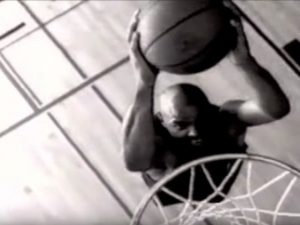
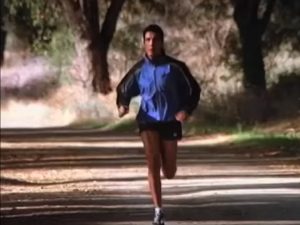
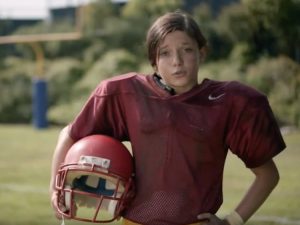
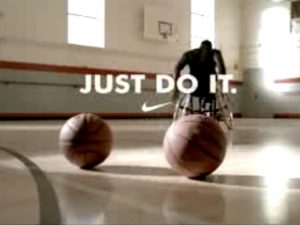


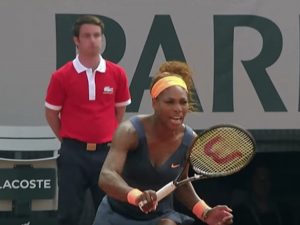

No Comment